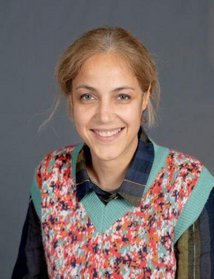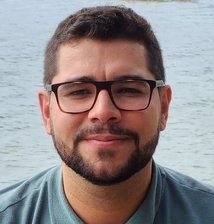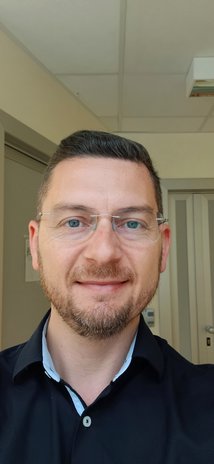Editorial Board

Dr. Maryam Ardalan, MD, PhD, is an Assistant Professor (Researcher, Principle Investigator) in the Department of Physiology at the University of Gothenburg, Sweden. Her research centers on brain development and the early identification of biomarkers for autism spectrum disorder (ASD). She earned her PhD in Neuropharmacology from Aarhus University in 2016, focusing on brain plasticity and rapid-acting antidepressants. Following her PhD, Dr. Ardalan joined the Mallard group at the University of Gothenburg as a postdoctoral fellow, where she was awarded the prestigious Lundbeck International Postdoctoral Fellowship. Her postdoctoral research investigated how early-life immune challenges associated with preterm birth influence brain development and increase the risk of ASD. In 2023, Dr. Ardalan received a Swedish Research Council (VR) Starting Grant to establish her independent research group, Biomarkers for Autism. Her current work explores how infections in premature infants interact with genetic risk factors for ASD, aiming to uncover early biochemical markers and novel therapeutic targets. Dr. Ardalan's research is highly translational, bridging molecular neuroscience with clinical neonatology. She collaborates internationally to promote early diagnosis and precision medicine in neurodevelopmental disorders.
https://www.gu.se/en/research/biomarker-for-autism
https://pure.au.dk/portal/en/persons/maryam.ardalan%40clin.au.dk

aJuliana Aparecida Bolzan is a Postdoctoral Researcher in the Graduate Program in Pharmacology at the Federal University of Santa Catarina (PPGFMC/UFSC) and a CAMARADES Brazil research group member (https://camaradesbrasil.bio.br/). She conducts research in Pharmacology, Systematic Reviews, Meta-Analyses, and Evidence Synthesis. Her previous experience involves the development of tools and resources to assist pharmacologists in conducting Traditional and Living Systematic Reviews. She is passionate about programming languages and collaborates in research involving Metascience in several biomedical fields."
ResearchGate: https://www.researchgate.net/profile/Juliana-Aparecida-Bolzan-2

From my background, I’m a clinical psychiatrist and an active scientist for 30 years in the City of Tampere, Finland. My earlier career has been as Professor of Psychiatry at the Tampere University since 2014 and my current position is Professor of Psychiatry at the Umeå University since 2022. I am also Professor of Psychiatry at the University of Turku, in Vaasa Central Hospital. I’m also a qualified cognitive behavioural psychotherapist, licensed in Sweden and Finland
My >100 peer reviewed international scientific publications cover the following subjects that are also my main topics of interest.
Pharmacogenetics in Psychiatry
Inflammatory Processes in Psychiatric Disorders
Compliance and Treatment Adherence in Psychoses
Dual Diagnosis in Psychiatry

Manuella Pinto Kaster, PhD, is a Professor of Biochemistry at the Federal University of Santa Catarina (UFSC), Brazil, and the coordinator of the Translational Neuroscience Laboratory. Her research integrates molecular neuroscience and clinical studies to investigate the biological mechanisms underlying stress resilience, mood disorders, and suicide risk, with particular emphasis on neuroimmune dysregulation and purinergic signaling. Dr. Kaster has authored over 80 peer-reviewed articles in the fields of stress and depression neurobiology and has extensive experience mentoring undergraduate and graduate students as well as postdoctoral fellows.

Cássio Morais Loss, Ph.D., is a postdoctoral fellow at the Florida Atlantic Stiles-Nicholson Brain Institute in the lab of Henriette van Praag, Ph.D.
A native of Brazil, Loss earned his doctorate in biological sciences from the Universidade Federal do Rio Grande do Sul.
His current research focuses on how adult hippocampal neurogenesis, spontaneous or induced by physical activity, affects cognitive behaviors in rodents. One of his projects involves identifying how exercise or exercise-mimetic molecules can assist aging brains in forming new neurons and preventing neurodegenerative conditions like Alzheimer’s disease. He is also engaged in projects examining the relationship between neurogenesis and cognitive behavior in neurodevelopmental disorders as well as in immune-related responses in the brain.
As a behavioral neuroscientist concerned with scientific reproducibility and ethics in laboratory animal research, Loss employs alternative methods to interpret animal behavior, aiming to enhance reproducibility. His approach includes detailed planning of experimental designs, gathering alternative behavior data, and utilizing unconventional statistical methods such as principal component analysis and generalized linear mixed models in data analysis. Both within and outside the lab, Loss advocates for best practices in research, emphasizing that combining animal welfare with experimental rigor can help to improve reproducibility.
https://www.fau.edu/research-admin/postdoc-affairs/postdoc-bio-loss/


Short Biography
I graduated in Biomedical Sciences (1983), obtained my Master's in Pharmacology from Escola Paulista de Medicina (1987) and my PhD degree in Psychobiology from the Universidade Federal de São Paulo (1990). Soon after my PhD, I went to Stanford University for my post-doc and worked for 40 months under Dr. Seymour Levine’s supervision. Currently, I am a Full Professor and Chairwoman of the Department of Psychobiology at Universidade Federal de São Paulo. My group is devoted to study the effects of stressors during brain development on vulnerability and resilience to stress-related to psychiatric disorders, using behavioural tests based on similar motivations in humans and rodents, such positive and negative valence behaviours. I am the past-President of the Brazilian Society of Neuroscience and Behavior - SBNeC (2020 - 2023) and current Vice-President of SBNeC (2023-2026). I am a member of the Latin American Committee of the International Brain Research Organization (IBRO-LARC) and the Executive Board of Latin American Federation of Neurosciences (FALAN). I participate in inclusion and diversity groups, such as World Women in Neuroscience (IBRO) and Alba Network (Federation of European Neuroscience Societies - FENS).
Contact email: deborah.suchecki21@unifesp.br
Webpage: Researchgate.com/Deborah Suchecki

I currently work as Assistant Professor of Pharmacology at the Department of Biomedical and Biotechnological Sciences (BIOMETEC)-Section of Pharmacology, University of Catania. I’ve always been interested in neuropsychopharmacology and in particular in rodents-human translational studies. The tools and expertise I gained through my scientific experience at University of Catania and at University of Cambridge, helped me to spearheaded my current scientific activities. My main research focuses on the study of the neurobiological mechanisms underlying traumatic stress susceptibility/resilience, as well as on the identification of new pharmacological targets for stress-related disorders such as post-traumatic stress disorder (PTSD) and major depressive disorder (MDD). Currently, I am also focused on the study of the detrimental effects of acute stress on episodic memory, with a special focus on the role of sex-dependent glutamatergic dysfunctions.
